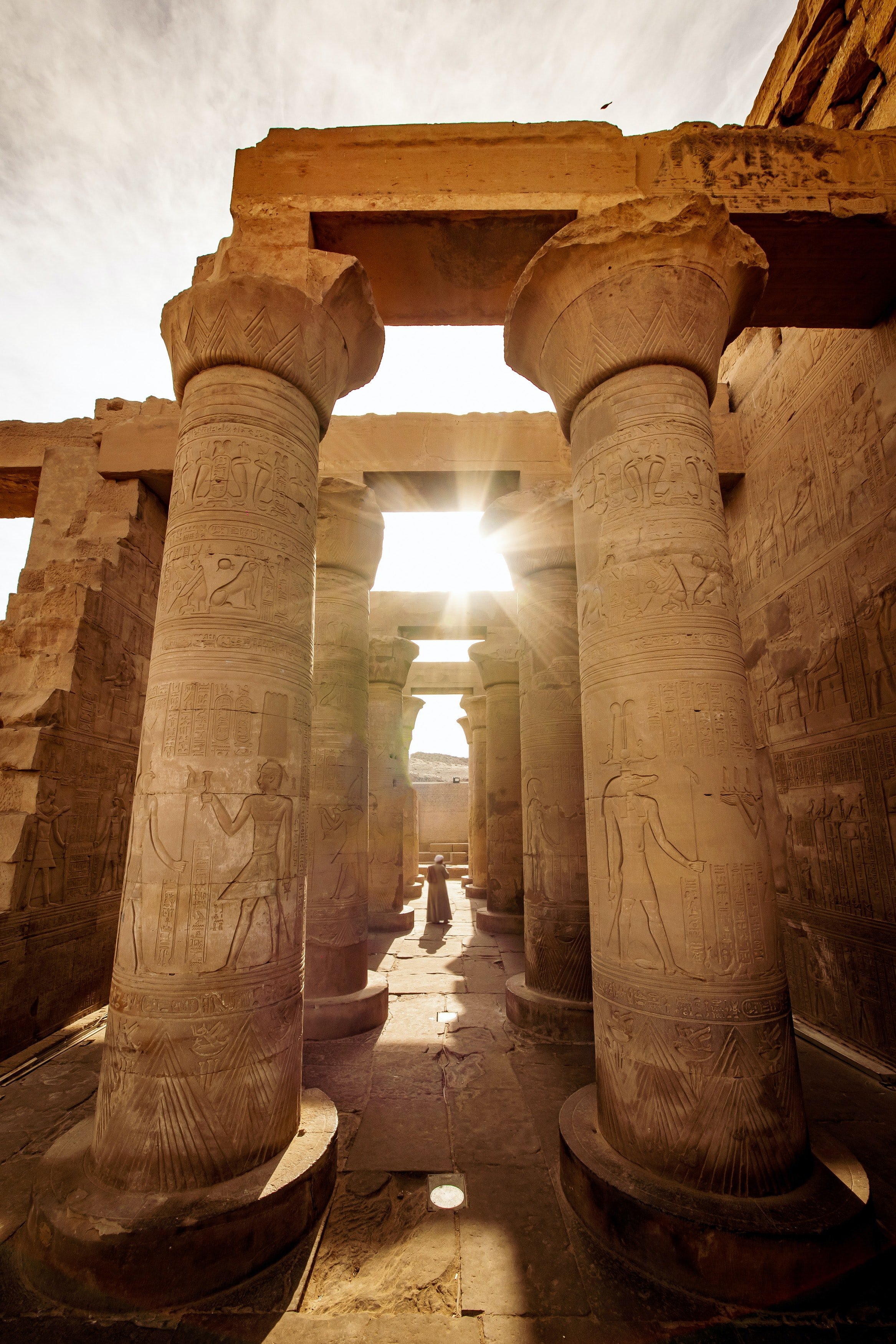One of the most frequent refrains in the New Testament are the words: “He who has ears to hear, let him hear.” On the surface, this may sound to us like an unnecessary and obvious command. What else do ears do but hear, after all? We take for granted that our ears hear, but take a moment and listen. Now listen for the sounds that you had previously filtered out, perhaps the sound of an air conditioner or fan, the sound of people or birds outside, the sound of the refrigerator condenser or dishwasher. Did those sounds begin to exist when you heard them, or did you begin to attend to them with your ears? If you had not done so, would your life have been different?
Read MoreMy sourdough starter, Xeno, turns ten this year. Short for xenophilius or, roughly, ‘the one who loves the stranger,’ he has helped us to create food both sweet and savory to host anyone who comes to our house, to provide a gift for friends and family in seasons both festive and mournful. Xeno has sired many starters over the years, and the last I checked is now officially a grand-starter with his composition of yeast and lacto-bacilii replicating as we speak in mason jars all over Southern California.
Read MoreThere is a resurgence in attraction to liturgy. This is, in part, a reaction against the subjectivity of contemporary worship. The latest new thing in worship can diminish in attraction over the years. It can come to feel like the latest attempt to manipulate the emotions—like most communication in the marketing and consumer culture.
Read MoreThis will be the first of several posts on the topic of liturgy. The word liturgy means literally “the work of the people.” It was used in ancient Greece to refer to offerings made for the public good. However, in the church the word liturgy refers to acts of corporate worship that form us into the Body of Christ.
Read MoreTomorrow is Christmas Eve. The advent of Christ – that Coming we’ve anticipated for weeks – is imminent. Like the virgins who await the bridegroom in Matthew 25, we must wake up and trim our lamps. The Bridegroom comes. It is time to meet him.
Read MoreIn our exploration of Christian heresies, we see much of the problem stems from the effort to square Jesus’s life and ministry with the oneness of God. In other words, how can there be only one God, as the Old Testament affirms, then how does Jesus fit into that equation? The heretic, whatever his motivation, usually winds up denying some aspect of Jesus in order to ‘fit’ Him into their view of God’s oneness, usually either by denying His humanity or His divinity.
Read MoreThe Story of a Soul is St. Thérèse of Lisieux’s spiritual autobiography. It tells the story of how, at a very young age, she conceived a passionate desire to become a Carmelite nun. She fought hard to be admitted early entry, and took the veil at the young age of 15.
Read MoreOnce upon a time there were no stories. Nearly 14 billion years worth of tales untold until suddenly, Man, sitting around a fire telling stories. Some were true, some were lies, and some were fictional but somehow still true. But what is a story? When someone asks for “your story”, when my mom used to make sure she was home at noon every day to watch her “stories”, or when a reporter “smells a story”, is the same word being used for the same thing or is there a core thing we call a story? How can a painting tell a story, or a piece of music? How can a shoe on the side of the road have a story behind it?
Read MoreDespite the undivided church coming together at the Council of Nicaea to lay out the basics of its understanding of the Trinity in the year AD325, the heresy of Arianism continued to flourish. If you’ll recall, Arianism posits that Jesus was not eternally present with God the Father but was rather a created being. That is why the Nicaean Creed states of Jesus;
Read MoreI was not always a Christian. In fact, I wasn’t baptized until I was 40 years old. Befitting someone whose family on his mother’s side could trace their lineage to the Pilgrims, a group who thought Calvin was too Catholic, my father was not a fan of infant baptism. On the other hand, Pappy, his paternal Grandfather, had emigrated from England and inherited from him that Anglican dislike of a firm position. The result of which was that I was to ‘make my own choice,’ which took a long, long time.
Read MoreHoo boy, we’re really in the weeds this time with the heresy of Sabellianism. I’m talking real ‘Inside Baseball’ stuff here with terms like Patripassianism, Homoousios and modalistic monarchianism’ being bandied about. But while such words are unfamiliar, once one learns the definition, they’re not such a problem. On the other hand, a far more important word in our discussion is one that is familiar to every Christian but one that doesn’t limit itself to an easy definition, rather it opens into further mystery, that of ‘Trinity’. But before we can really dig in we have to go back, way back to the dawn of civilization.
Read MoreIn my last essay, I unpacked some of the origins of deconstruction and pointed out how it is an inevitable product of modernity. Deconstruction pulls at the possibility of relationships, of symbol and meaning, of self to self. Deconstruction is the perfection of modernity’s idolizing of the self; it reduces all who practice it to irretrievable isolation within themselves. In the end, deconstruction leads the practitioner to lock the door from the inside of themselves, subjecting what is left of themselves to an endless ruminating scrutiny. They end in something like despair (although I do not know precisely what to call it because even despair seems too constructive a term). Yet, for all of the grim by-products of deconstruction, many questioning Christians are turning to it as a desperate last resort…
Read MoreWe began by defining tradition in its broadest sense as “giving over” and discussed some of the ways Christians understand what it means to pass down the practice of the Faith through the generations. We also explored how Anglican Catholics have a unique sense of obligation to the past and to those giants of the Faith on whose shoulders we now stand. A high view of tradition is an expression of gratitude for what has been preserved through great trials, recognizing that many have suffered to remain faithful to the Lord as they encountered Him in the Church’s prayer, and for whom they endured unimaginable persecution. They understood that the Faith was a gift, one to be received and then given in turn within a view of the Church that was bigger than themselves but of which they were a vital part. It is to that volta between reception and gift in tradition that I would like to turn our attention in this essay.
Read MoreThere is a sweet sense of reunion that attends me when I look at the first, blank page of a new piece of writing. There, I am confronted with the fact that I never immediately know what I should write. It is a lonely feeling that, I think, ought always to attend the attempt to do something novel, and particularly by myself in an empty room. And yet, that lonely space has become the occasion for remembrance, in this moment a kind of invitation of past voices to speak again and come to my aid. If it’s a lesson-plan I am writing, certain master teachers come to mind. If it’s a sermon, then there are certain pastors. If—heaven help us—I am attempting a poem, then the much annotated stars of my Norton anthology start to emerge. Sometimes, it is a friend; sometimes, it is an ancient author I have never met but through their words. I try to ask as politely as possible: will you help me find my words with some of your own?
Read MoreWhenever I hear ‘Montanism’ all I can think of is poor Vasily Borodin in ‘The Hunt for Red October’ uttering with his dying breath, ‘I would have liked to have seen Montana.’ Poor Vasily, who only wanted to live in Montana, marry a round American woman and drive a pickup truck... or maybe even a ‘recreational vehicle’. Sadly, it was not to be for Vasily, shot by the cook (who we all knew was up to something, the way the camera lingered on him in that one scene).
Read MoreI’ll never forget the first time I received an icon. During the pandemic, a friend of my mom’s who is Coptic Orthodox let me pick any icon I wanted from her icon corner and keep it. I ended up choosing a very small two-panel icon, one side had St. Mary tenderly holding the Christ Child while the other had Christ holding scripture and giving a blessing. All of her icons were so beautiful; I didn’t understand how she was ready to part with any of them. But because of her generosity, I was able to experience the blessing of receiving an icon.
Read MoreDerived from the word ‘pelagic,’ from the Greek πέλαγος (pélagos) 'open sea,' Pelagic fish are those who do not live near the bottom or shore but out in the water… Oh, wait… I meant to google Pelagianism, not Pelagic fish. My apologies. We continue our survey of heresies with a look at Pelagianism.
Read Moret’s attractive, isn’t it? That there is secret, hidden knowledge available to a few, select individuals and that you have been invited to share in its mysteries. If the great temptation of Christian theologians is to seek to overexplain and eliminate any hint of ambiguity, who furiously fret at the hem of anything that smacks of ‘mystery,’ unraveling as much as they can and sweeping anything leftover under the rug, thereby winding up in heresy, there is another path to heresy when people don’t understand Christianity as a unity within itself. In other words, if we are free to take stuff that we like and excise the parts we don’t, we wind up as heretics.
Read MoreIntroducing the first in a series exploring various heresies that have plagued Christianity throughout the centuries. Many of the tenants of the Faith which we now take for granted began as antidotes to these heresies. For example, the Nicene Creed was the result of the Church describing as best it could what it understood about God as Father, Son, and Holy Ghost. Now the Creed doesn’t define God explicitly, it basically says in essence, this is what we know, as limited as it is, about God and anything that strays outside the lines from this, is in error.
Read More



















